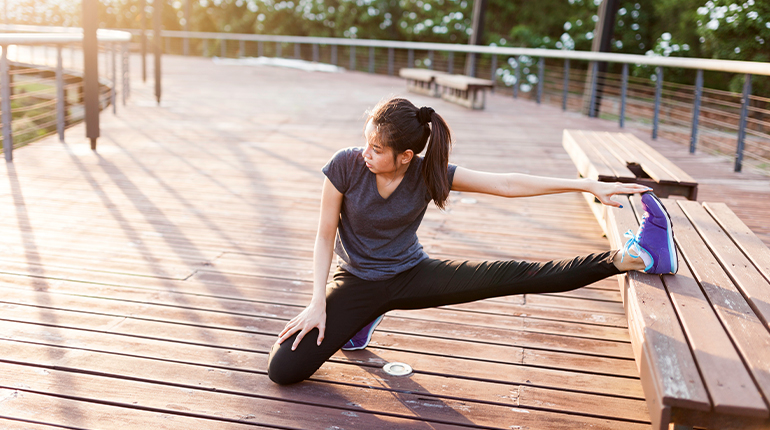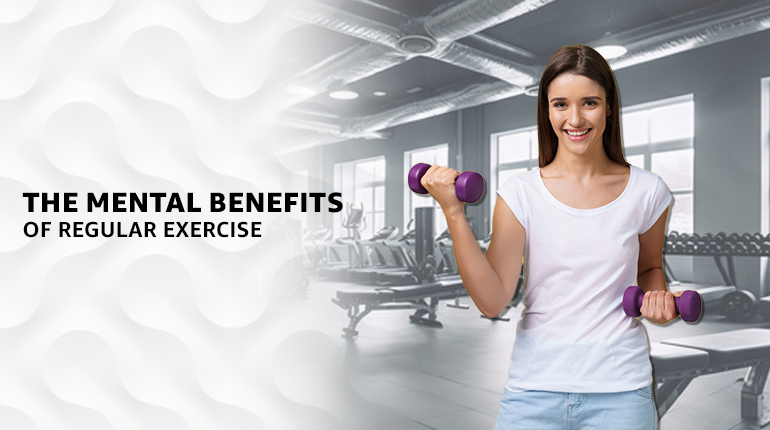Exercise has many advantages for your physical health that appear more apparent, but its benefits for your mental health should also be highlighted. Movement is more than just a series of muscular contractions; it's medicine for the body and soul.
One notable supporter of this concept is Dr. Jordan Metzl, a distinguished sports medicine physician and author, who has championed the idea of exercise as a form of medicine in his influential book "The Exercise Cure." He emphasizes the therapeutic benefits of movement as an essential component of a holistic approach to health.
At its core, fitness offers a sanctuary—a sacred space where we can disconnect from the noise of the world and reconnect with ourselves. Physical activity, such as jogging on a treadmill or focusing on the breath and movement in a yoga session, can help us center and ground our minds.
.jpg)
While we all know about the superpowers of endorphins and how they flood our brains, acting as natural painkillers and mood elevators, the benefits of fitness extend beyond the immediate euphoria of a post-workout high. Here’s what working out is doing for major mental health issues faced by society:
1. Resilience, consistency, and discipline:
Exercise boosts your consistency and discipline when it comes to following a routine. Additionally, it helps the body become more resilient to the effects of stress by improving the body's ability to recover from stressful situations and reducing the physiological response to stressors
2. Emotional Regulation & Antidote to Depression:
Exercise can help regulate mood swings, providing a sense of emotional balance and well-being as it stimulates the production of neurotransmitters like serotonin and dopamine, which play key roles in regulating mood. Additionally, exercise provides a sense of accomplishment and purpose, helping individuals regain control and combat feelings of hopelessness, working to battle depression.

3. Boosted Self-Esteem & Reduces Anxiety:
Achieving fitness goals and feeling stronger physically can boost self-esteem and enhance your personal view of your body image. Exercise has been shown to reduce symptoms of anxiety by promoting the release of endorphins, the body's natural mood elevators. Engaging in physical activity can help alleviate tension, improve sleep quality, and boost confidence, all of which contribute to managing anxiety effectively.
4. Enhanced Cognitive Function & Benefits for People with ADHD :
Physical activity has been shown to enhance cognitive functions of individuals overall, but especially those with ADHD by increasing focus, attention, and impulse control. Exercise stimulates the release of neurotransmitters that are essential for cognitive function, helping individuals with ADHD better regulate their behavior and improve executive functioning skills.
5. Enhanced Cognitive Function & Neurogenesis:
Research suggests that exercise can stimulate the growth of new brain cells in the hippocampus, a region associated with memory and learning, potentially enhancing cognitive function, focus, and problem-solving skills.
6. Mindfulness Practice:
Exercise is a natural stress reliever. It helps to lower the body's stress hormones like cortisol and adrenaline while increasing the production of endorphins, which promote feelings of relaxation and well-being. Incorporating regular physical activity into your routine can help manage stress levels and improve overall resilience. Exercise, can get you completely present in the moment and reduce rumination, anxiety, and negative thinking patterns.
Conclusion:
The philosophy of Metanoia Healing fits in perfectly with the notion that with every step forward in your fitness regime, you are not only burning calories and gaining muscle when you work out but you are also healing your mind and spirit. Discover how a harmonic fusion of body and mind can result in holistic wellness by investigating revolutionary techniques at Metanoia Healing.
In summary, consistent exercise has equal benefits for the mind as it does for the body. Fitness not only helps to shape our bodies but also provides resilience, emotional balance, and cognitive enhancement, making it a sanctuary for our minds and souls.
Also Read: Mind-Body Connection: Can You Think Your Way into Weight Loss?
5 Fun Couple Workout Exercises: Sweat Together, Stay Together
 India (INR)
India (INR)
 UAE (AED)
UAE (AED)
 Store Locator
Store Locator



.jpg)

-thumb.jpg)
-thumb.jpg)
-thumb.jpg)
-thumb.jpg)
-thumb.jpg)
-thumb.jpg)
-thumb.jpg)
-thumb.jpg)
-thumb.jpg)
-thumb.jpg)